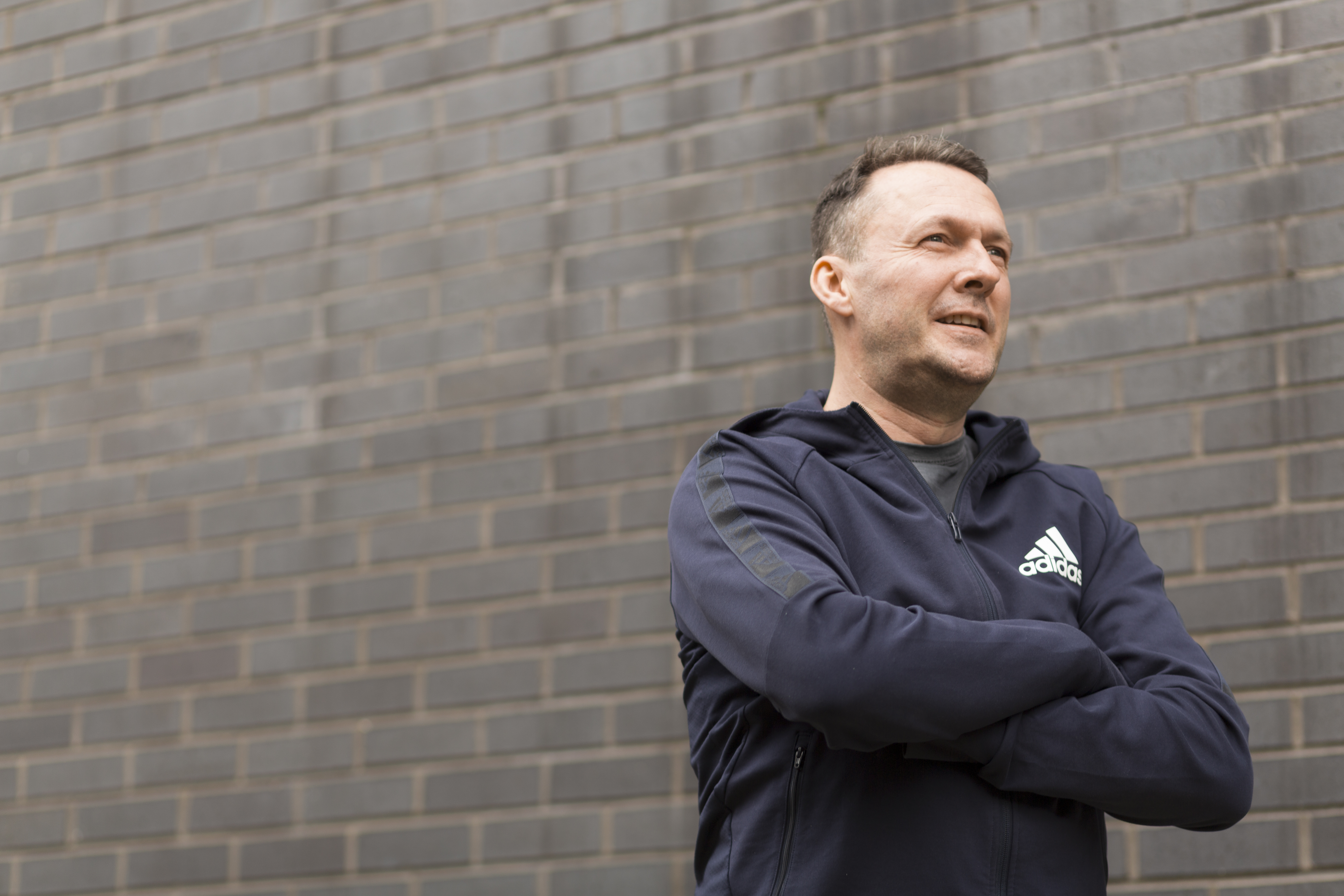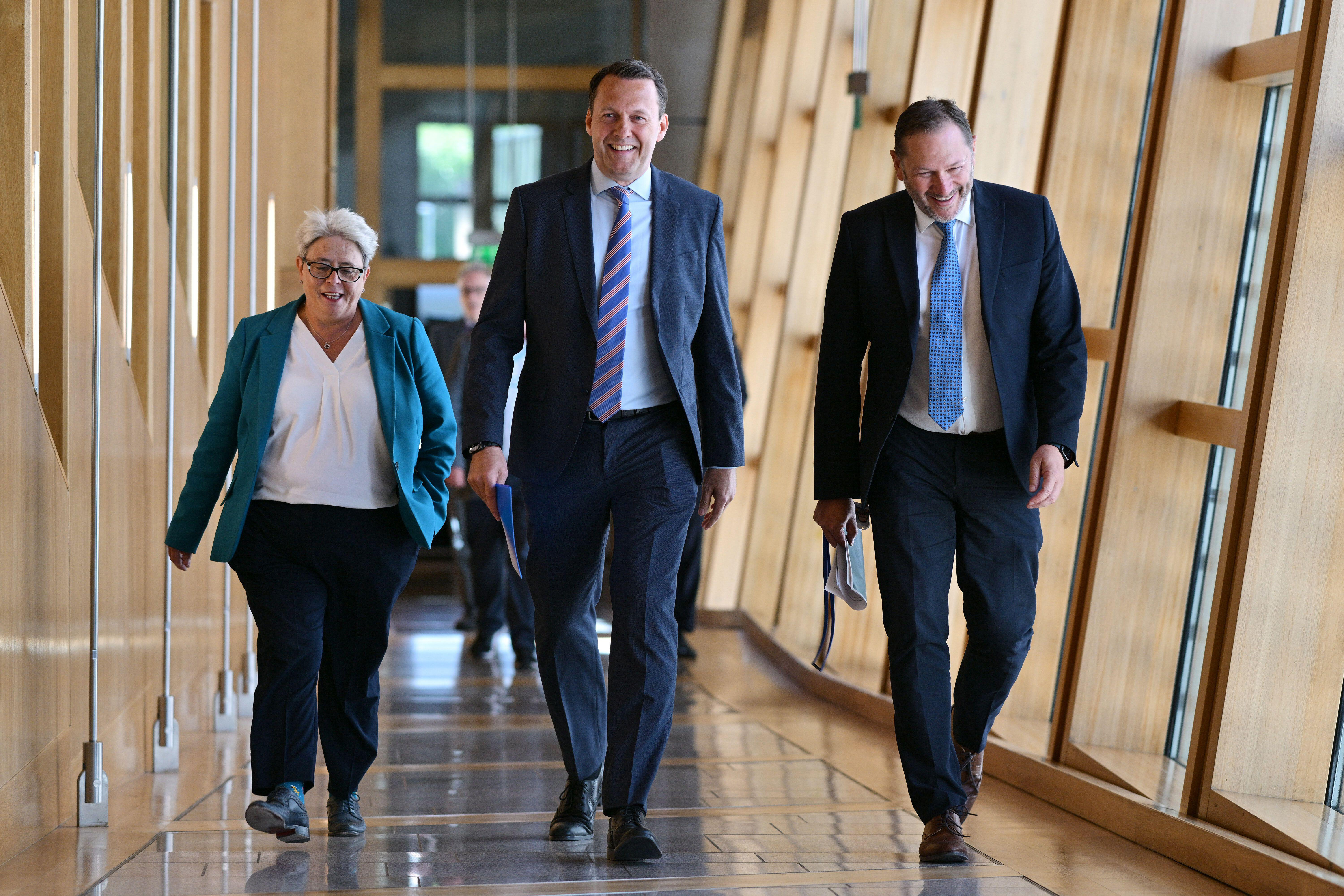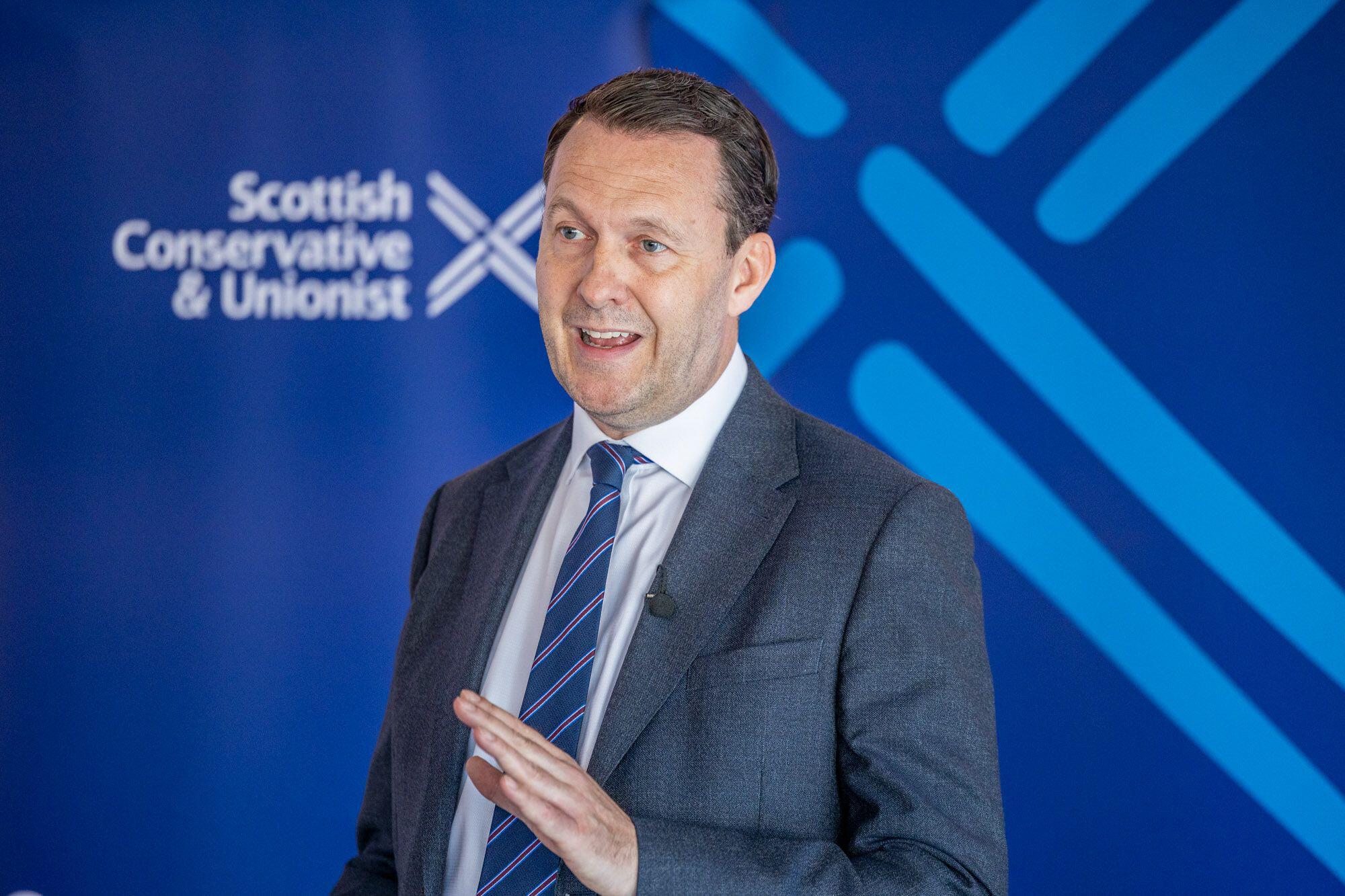Russell Findlay: We'd pursue policies that would 'upset the blob'
It’s a difficult time to be the leader of the Scottish Conservatives. Current polls suggest the party may lose half of its MSPs at the Holyrood election next year, shrinking to its smallest size in the history of devolution, and potentially putting it in fourth place behind both Scottish Labour and Reform UK.
Yet Russell Findlay has managed to maintain some optimism.
Taking on the top job eight months ago, he says he knew that it would be a “huge amount of work” to rebuild trust and “earn the right to be heard” after his party crashed out of government with its worst-ever general election result. But, he says, he’s putting in the hours and determined to turn the party around.
In part, his optimism stems from the belief that where the Tories are now has very little do with him – or indeed any of his Scottish predecessors – and more to do with the politics of down south.
“We have been the only effective opposition to the SNP. Despite that, our fortunes are tied to the wider UK picture,” he says. This has long been to the benefit of the SNP, but he argues that if the normal “laws of political physics” applied in Scotland, it would be his party that would benefit from the SNP’s downfall.
There are huge tranches of people who believe in conservatism with a small c
Findlay is certain that emphasising his party is not part of the “left-wing Holyrood consensus”, as he has frequently described it, is the right approach – not necessarily to make him first minister next May, but at least to start moving the dial on Scottish politics.
“The Conservatives are not some rare breed. The Tories in Scotland aren’t a fringe interest, it’s a mainstream interest. We’ll have been the second largest party at Holyrood for a decade going into this election, and that’s not a coincidence. That’s because there are huge tranches of people who believe in conservatism with a small c. I need to persuade them the big C is entirely natural. It’s not controversial. It makes a lot of sense.”
I ask whether that means trying to appeal to voters who may disagree with him on the constitution but would otherwise agree with his party on other issues. He looks decidedly sceptical when I first suggest it, saying Scottish independence is “illogical” and would be “financially and socially catastrophic”.
But once he’s got that off his chest, he accepts that there are plenty of people – including, he suggests, some SNP MSPs – who “are Tories, other than the fact they believe in breaking up the United Kingdom”.
That’s because separate to the SNP’s “constitutional obsession”, Holyrood as a whole has been “obsessed with spending more of people’s money, rather than recognising that people want to be left alone to live their lives,” he says. So while his party will “never, ever shift our position” on independence, he would welcome the support of Yes voters who recognise the parliament has “failed to deliver far too often”.

However, he balks at the suggestion that independence now has taken a backseat in Scottish politics.
“We would be recklessly naïve if we went into 2026 thinking independence is off the table. It’s not, it never has been, and it never will be, because you can be certain of this: if, God forbid, the SNP form a government in 2026, it will be top of the agenda as it always is, to the detriment of the health service, of Scotland’s failing schools, and of the carnage and criminality in far too many of our communities.”
Findlay, in a previous interview with Holyrood, seemed to accept that he’s unlikely to become the next first minister. “For me to say, Jo Swinson-style, that I’m going to be first minister, you would just laugh at me,” he told the magazine then. I ask him, therefore, what his ambition actually is for next year.
“This is the question that I no doubt will be asked quite a lot,” he muses. He says that while his party should have the long-term ambition of entering government one day, this election is mostly about removing the SNP from power, “for the collective good of society”.
If the Lib Dem leader or Anas Sarwar or whoever it might be wants to speak to me, it would be silly to say no
That will probably mean working with the other parties. Has he thought about what that means in terms of reaching across the aisle?
“It’s a complete folly for me at this point to start speculating on what that might look like,” he says, pointing to volatility in the polls and in global politics. But he does accept there is a “greater necessity for parties to work together to get things done”. “Depending on how the cards fall in 2026, when that’s clear, at that point I think it would be sensible to start thinking about what that looks like practically.”
Pressed on who he could see himself working with – or even if others would want to work with him – he says: “If the Lib Dem leader or Anas Sarwar or whoever it might be wants to speak to me, it would be silly to say no. If they find that difficult, that’s up to them. But again, it’s all very speculative, isn’t it?”
The only party he categorically ruled out working with is the SNP, though interestingly – and despite the many column inches spent pondering the idea – he’s also a little sceptical of any possible Reform/Conservative pact, should Nigel Farage’s party secure seats next year.
Findlay explains this is because he’s concerned Farage might put John Swinney back in power, pointing to an interview with The Times in which Farage suggested he would rather that than see Labour’s Anas Sarwar become first minister. The Reform MP said he was “not that worried about the SNP” because “Scotland is not going to leave the United Kingdom”.
“Well, he might not worry about the SNP, but I do worry about the SNP,” Findlay tells me. “Maybe it’s because I live here and I’ve had to live under the SNP for a lot of my adult life, I see the damage they’re doing to the city I live in, Glasgow, and across the entire country.”
The SNP has a lethargy and complacency around this just so that they can put on leaflets, ‘free prescriptions in Scotland’
The next election will not just be decided on the SNP’s record in government, however. It will also be about what the other parties put forward. So what do the Scottish Conservatives offer to the electorate?
Across all areas, one topic that keeps coming up – that’s clearly stuck in Findlay’s craw – is misrepresentation of his party’s position. On the NHS, for example, he says there is often a “shrillness” to any debate on the topic.
“As soon as any party attempts to even say there’s a problem, they’re accused of undermining the NHS, accused of wanting to privatise the NHS,” he explains. “That’s complete nonsense, but it does prevent the ability to have a debate.
“Most people in the real world would recognise that the NHS has become a money pit, that outcomes in the health service are getting no better. One of the smaller things on the ground is the scheme for free prescriptions – and please put ‘free’ in inverted commas because they’re not free.
“Why should millionaires in Scotland get their prescriptions free? Why should they be prescribed paracetamol, for example, that costs 35 pence but will cost the taxpayer a tenner? This stuff can be fixed.
“The SNP has a lethargy and complacency around this just so that they can put on leaflets, ‘free prescriptions in Scotland’, ignoring the fact that many prescribed items in the rest of the UK are free because they’re prescribed in the basis of the means of those receiving them.”
 Alamy
Alamy
The solution, he says, is having the “gumption to take on vested interests”. “I think both Labour and the SNP are so beholden to both the trade unions and the wider chattering lanyard class where they really don’t want to upset people. Whereas if we had identified a policy that would perhaps upset the status quo, would upset the blob – whether it’s the health blob, the education blob or the justice blob – we’d pursue that. We wouldn’t be worried about breaking a few plates to get things done.”
For the detail of what that looks like, he says I need to “wait and see” what the party comes up with in its manifesto – but that his frontbench team is “working hard to identify how to fix these big problems”.
On tackling the crisis facing the NHS, for example, he says that starts with altering the way GP services work. “If you fix that, if you fix that point of access, then that does a heck of a lot to improve the function of the health service as a whole.”
Another major point of concern for the Scottish Conservatives is tax. Findlay would like to see the burden of tax reduced, particularly income tax which he believes should be in line with the rest of the UK.
If you gave me 10 minutes in St Andrew’s House, in the filing cabinets, I’d find tens of millions of pounds worth of savings
“Scottish taxpayers, including myself, are like frogs in hot water, and John Swinney has been increasingly turning up the heat. Before we know it, people on relatively modest salaries who work really hard have nothing left before the end of the month. They’re paying substantially more income tax than they would in the rest of the UK.”
Of course, tax cuts would have to be paid for. To Findlay, the answer is simple: tackling government waste. “I don’t have to come up with some exact formula as to how we would make those savings. What I do know, and what anyone can see, is the waste the SNP have presided over, over the past 20 years, is eye-watering, it’s breathtaking, it’s gargantuan, it’s obscene – pick your adjective.
“If you gave me 10 minutes in St Andrew’s House, in the filing cabinets, I’d find tens of millions of pounds worth of savings. That’s about a party that’s so complacent and so arrogant that they’re not willing to not knock heads together, they’re not willing to challenge why money is spent in a particular way.
“The mis-spending in Scotland is utterly ridiculous and I think any serious political party, any credible government, will be able to identify that and do something about it.”
The benefits bill is one example of waste, he says, because the policy is shaped “blindly on the basis they want to virtue signal that somehow the Scottish Government is more caring than UK governments have been”. He says this traps people on benefits and is expensive for taxpayers. “It is unfair and it’s unsustainable,” he adds.
Likewise, he’s concerned about the lack of fairness around the transition to net zero. In April, Findlay challenged the 2045 target – an area which previously enjoyed consensus across all Holyrood parties – citing concerns about affordability. A Climate Change Committee report published the morning we are speaking describes that target as “ambitious but credible”. Why is he right and the experts on the CCC wrong?
We believe in climate change... But we also realise the reality of how this needs to be implemented has to be affordable
“It might be theoretically affordable, but the price attached to that target is so eye-wateringly obscene for the people who would have to pay for it,” Findlay says.
“We need to be realistic. We shouldn’t be robbing our own people to achieve a target when the rest of the world, where the vast amount of emissions emanate from, are doing next to nothing… I think people in this country realise it’s about the basic understanding of fairness. Just as we’ve talked about fair taxation, a just transition has to be a full transition and it has to be one that’s fair. And right now, what’s being expected of the paying punter is completely unfair and unrealistic.”
I ask whether he believes there are any benefits to the low-carbon transition. He replies with an emphatic “yes” and says the idea that his party are climate deniers is “wilful misrepresentation” by opponents. But I wonder if he’s worried of being lumped in with others who do sound the alarm on net zero because they are climate change deniers.
“Most people, if they’re being fair, will see that we are not climate change deniers. Our political opponents will be a bit mischievous, but we will be very clear about where we stand.
“We believe in climate change. We believe in the harms that happen to our planet and the need to do everything we possibly can for future generations. But we also realise the reality of how this needs to be implemented has to be affordable to the people that are paying for it, who are normal Scots.”

Two other devolved policy areas which will form a battleground for next year are education and justice – which Findlay, perhaps unexpectedly, links. He has serious concerns about the rising level of violence in schools, which is damaging Scotland’s record on education. He says the driver is the justice system.
“This is due to the SNP’s weakening of the justice system whereby – and this is generalised, but it is true – they believe that the notion of punishment and personal responsibility and guilt are somehow old-fashioned. All that’s done is give a green light to young people that they can behave any way they choose, and this is being seen on streets and in communities, and it’s especially been seen in the schools.”
He says he receives emails every week from parents “terrified about their children going to school” and so he wants to see “discipline” returning to classrooms. I wonder if this too is an area where messaging and misrepresentation might be an issue.
“I suppose someone might hear ‘discipline in schools’ and have an image of a cane-wielding headmaster with bushy eyebrows and a temper,” he laughs. “It might be that instead of discipline in schools, we should talking about safety in schools, talking about why this this environment has been allowed to take root.”
On the wider issue of justice – the portfolio he is clearly most comfortable with, having been a crime journalist for years before entering politics and then holding the brief under Douglas Ross – he accuses the SNP of being “under the spell that people are somehow not responsible for their actions, that everything can be excused by other outside factors”.
“In fact, it’s up to individuals how they behave and the actions they take, and they should be held accountable for their crimes. I’m not proposing something radical. I’m talking about a fair justice system that puts the rights of victims at its centre. I find it laughable that the SNP government are in the process of passing a victims bill – which is in name only. It’s a bill that again looks to make things easier for those who commit crime.
“Our party will always stand up for the law-abiding majority. It’s not about hang ‘em and flog ‘em and lock ‘em up, throw away the key. It goes back to this misrepresentation issue. This is about being completely fair with people. It’s about removing people from society who are going to cause harm. And it’s about tackling organised crime more effectively.”
Holyrood Newsletters
Holyrood provides comprehensive coverage of Scottish politics, offering award-winning reporting and analysis: Subscribe